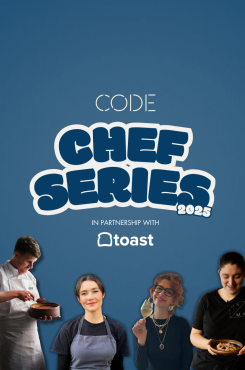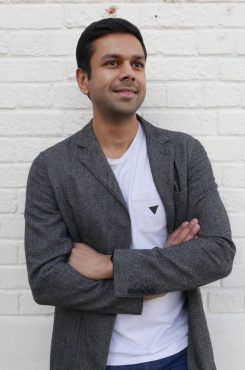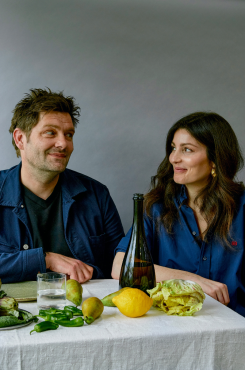I’d almost rather be recognised for the culture and the team, than the food
Published 20 March 2025
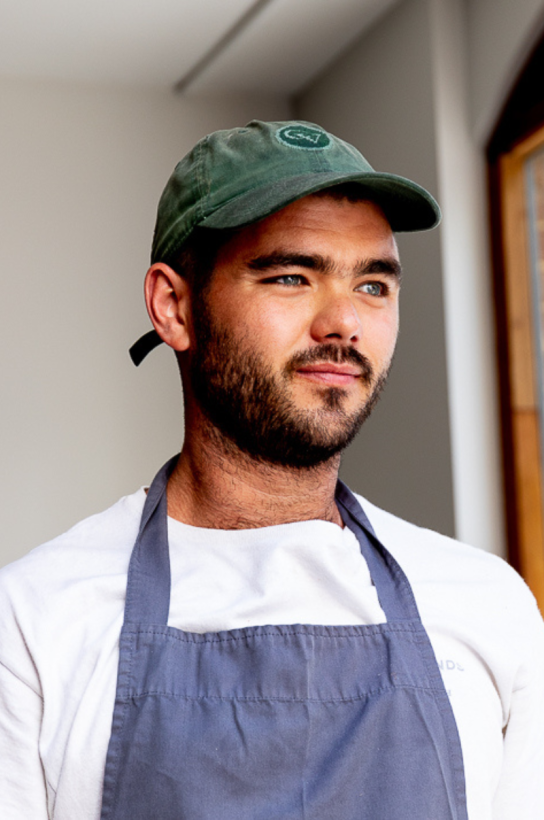
Ollie Templeton, co-founder of Carousel
Registrations for CODE Hospitality’s Happiest Places to Work 2025 in partnership with Planday open on Monday 7 April
In the space of a decade, Carousel, the original chef residency restaurant, has played host to a who’s who of chefs from all over the world including Niklas Ekstedt, Joké Bakare, Angie Mar, and Santiago Lastra. Since its 2014 launch, it has evolved from its original site in Marylebone into a multifaceted one in Fitzrovia, with over 70 members of staff on the roll working across restaurant, wine bar, events spaces, and a mezcaleria.
In 2024, Carousel was named one of CODE’s Happiest Places to Work 2024. CODE caught up with director Ollie Templeton, co-founder of Carousel with his brother Ed, to hear about the work they do to promote staff welfare and well-being.
When you started Carousel in 2014, what kind of workplace did you set out to create?
“Before we even opened Carousel, we would hire based on a set of values that we [Ollie, Ed, and their cousins and then-partners, Anna and Will] all agreed on and shared for the company. Values that would help us determine how to make tough decisions, whatever they might be. Hiring was never necessarily about skills but about attitude and personality. Obviously, skills were important but they weren’t as important as making sure we felt someone will be the right fit. Fast forward ten years, and our recruitment process, especially for managerial positions, is quite long; like, three to four interviews, trials, and a one-on-one meeting with the leadership team before we make a unanimous decision. The landscape of running a restaurant is very different to ten years ago and we’re constantly juggling and battling but the way we like to do things is to give everyone a good work-life balance, fantastic perks, and a really nice environment to work in, in terms of facilities, people and resources.”
One initiative you introduced was a 45-hour working week. Has that proven achievable?
“We achieve it every week. Company-wide, no one works over their contracted hours because we’re really strict with it. So, if it means reducing the menu in the wine bar for a few days, because things are a bit tough, that’s what we’ll do. Looking at your staffing over a year and striking a balance between quiet times and busy times is not an easy thing. But with our set-up – there’s literally five different operations happening at once when we’re at capacity – we work and share jobs between different areas to make efficiencies. That allows us to stick to the right amount of people and a sustainable amount of people from a business perspective but also be able to hit the 45 hours. As long as people know what their shift is going to look like, and know the space is more dynamic than a normal restaurant with one room.”
Feedback from Carousel staff was that “no two days are ever the same”. Do you think that’s a big plus in terms of staff retention and engagement?
“I do, because it’s super interesting. It’s a challenge as well. There are so many moving parts, it can sometimes be overwhelming. We’ve navigated that so it’s not necessarily “no two days the same” but maybe it’s a week in one area, a month in another, so you can really sink your teeth into projects. We’re constantly adapting and evolving and taking on new projects which creates new opportunities for the team and opportunities for growth. That’s really important to us: who we can bring up and then, who we can train up and keep that cycle moving.
Obviously, the people coming through the building are always different and that’s something that a lot of our employees find really interesting. Especially greener chefs in their first or second job who still have a lot to learn, they recognise that this is a place they can do it.”
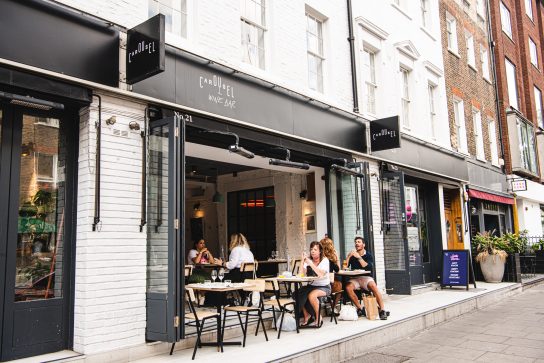
Skills-gaining was something else that came up a lot in the staff surveys. How important is development at Carousel?
“We really promote learning and growth and taking a lot of time in training and pushing people in the right direction when they need it. There’s a balance of nice times – it’s a really nice environment where the young chefs have become good friends which is what I had at Moro 15 years ago – but also if somebody’s not quite up to scratch, having those conversations and creating pathways to get people up to scratch. Sometimes it sounds kind of ‘corporate-y’ but it’s measurable. It’s like, you need to be able to learn how to make a litre of mayonnaise this way, this fast; you need to be able to arrive at work, do the beginning prep and set up the section for service all by 11 o’clock. Set a stopwatch and go. Pushing people in a positive way has really helped. Front of house, there’s a lot of training, WSETs, tastings happening all the time. Then for the office and the leadership team, getting external trainers in to give us tools and techniques to help us become better leaders. We’ve always been thrifty with that because it’s really expensive. These investments are important but quite often really, really expensive because the primary audience for those companies is corporate, but they have been really valuable.”
Your staff meals also get good feedback. Why are they so important?
“Carousel is a big old place. The events team will be upstairs – you might sometimes not even know they’re there – and there’s people downstairs doing big production jobs. But at 4.30pm, we know that there’s going to be really tasty, fresh food cooked. We’ll lay a table with still and sparkling water, cutlery, and have 30 minutes just to eat and chat. We try to say no phones but sometimes people will be on their phones. It’s a time we can all just sit down together, have some nice food, and get ready for the second half of the day. I love making staff food; I do it at least once a week. It’s 30 to 40 people having staff food on average, so it’s a lot of people and a really important part of the day. I know that it goes a long way.”
What goals do you still have to achieve in terms of staff welfare and wellbeing? What’s a priority for you?
“To be honest, it’s about making sure that we have a happy team. We measure staff retention and we’re really happy with the level we have. In the whole company, we’ve got people who have been with us since the beginning. We’re growing, so it’s really important to us as we grow to make the right hires. We just hired a really experienced director of operations to help us bring together all the talent to make improvements inside Carousel and also to do new projects outside. Obviously, growth for the team is really important, to make sure there’s progression, so always offering roles internally as well as externally for promotions.
One of our priorities is maintaining our facilities, stuff to do with the building, and dealing with things breaking. To give you an example, we’re in a Georgian building and the drains upstairs in the bathroom were getting blocked because people were constantly putting hand towels down them. Nearly every other week we’d have floods. So over Christmas, we redid the bathrooms and put in hand dryers. It’s actually had a huge positive effect on the team. We’re really focused on [maintaining facilities] and have people dedicated to it. It honestly has an effect on morale.”
How useful is data to you in terms of staff welfare, retention, and happiness? How do you measure it?
“Good question. From my perspective, we will check in with the team every three months, with the chefs, front of house, the leadership team, the office team, on their targets and their goals. In terms of KPIs, they’re very different for different roles and are something we track a lot; I’m sure we could be better at it. One of the KPIs of staff happiness is ‘have you taken any holiday?’ for example. Obviously, staff hours are something we’re looking at every week, and we’re comparing the data year on year, and even years on years, to see how we can make improvements. There’s a lot of data we look at on a regular basis.”
How did it feel to be named one of CODE’s Happiest Places to Work? Has it made a difference?
“The whole team was really proud. We were really proud. It’s something that we have talked about a lot. I’d almost rather be recognised for something where it’s about the culture and the team, than the food in a way. Being recognised along with so many other great places in the UK, it’s really flattering. The list came out late at the end of last year when it’s typically quite a tough time, when it’s busier and the work is harder and faster, and it was a real lift in morale. I’m sure it’s had a great effect on recruitment. It is a great testimonial for us.”


